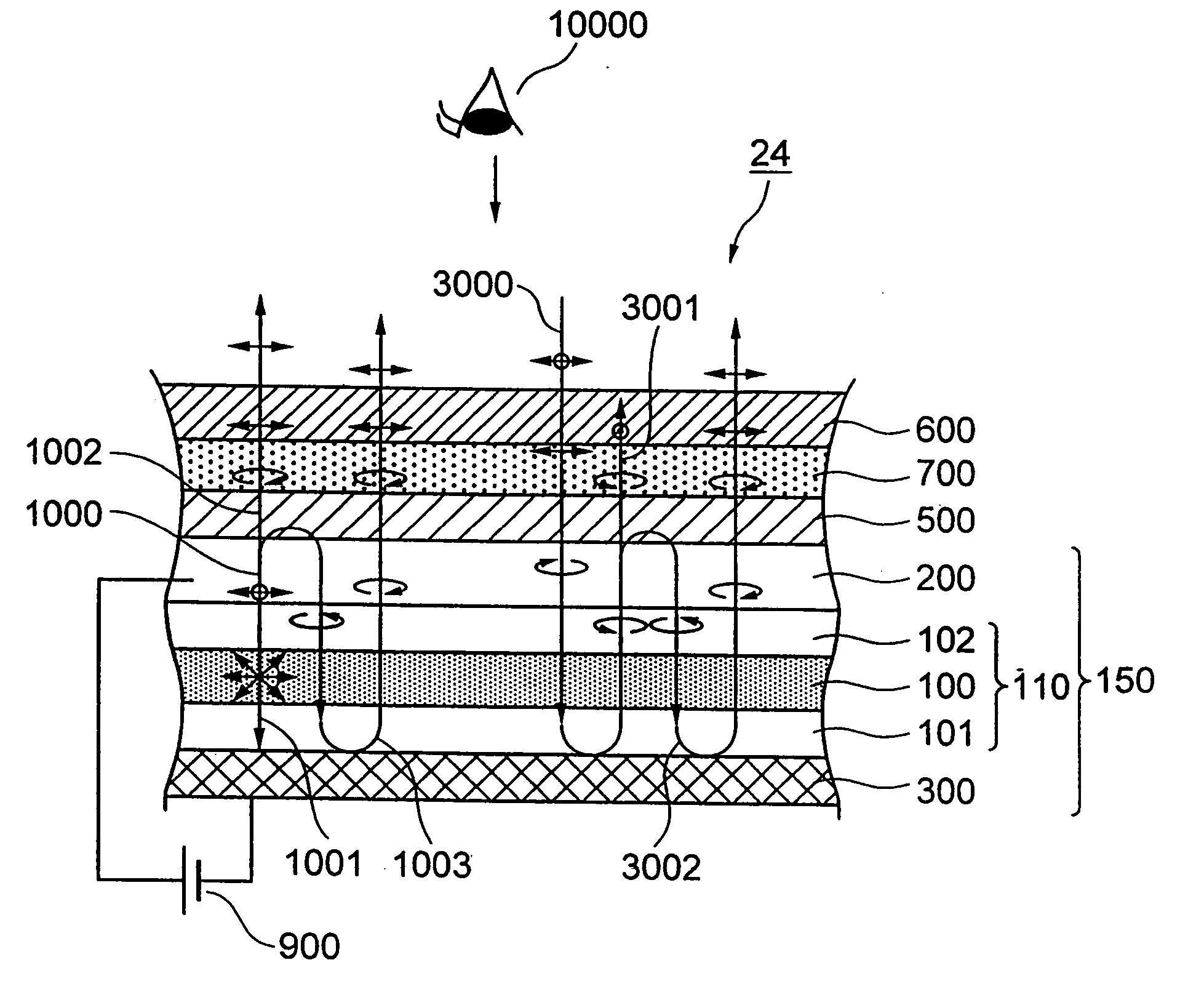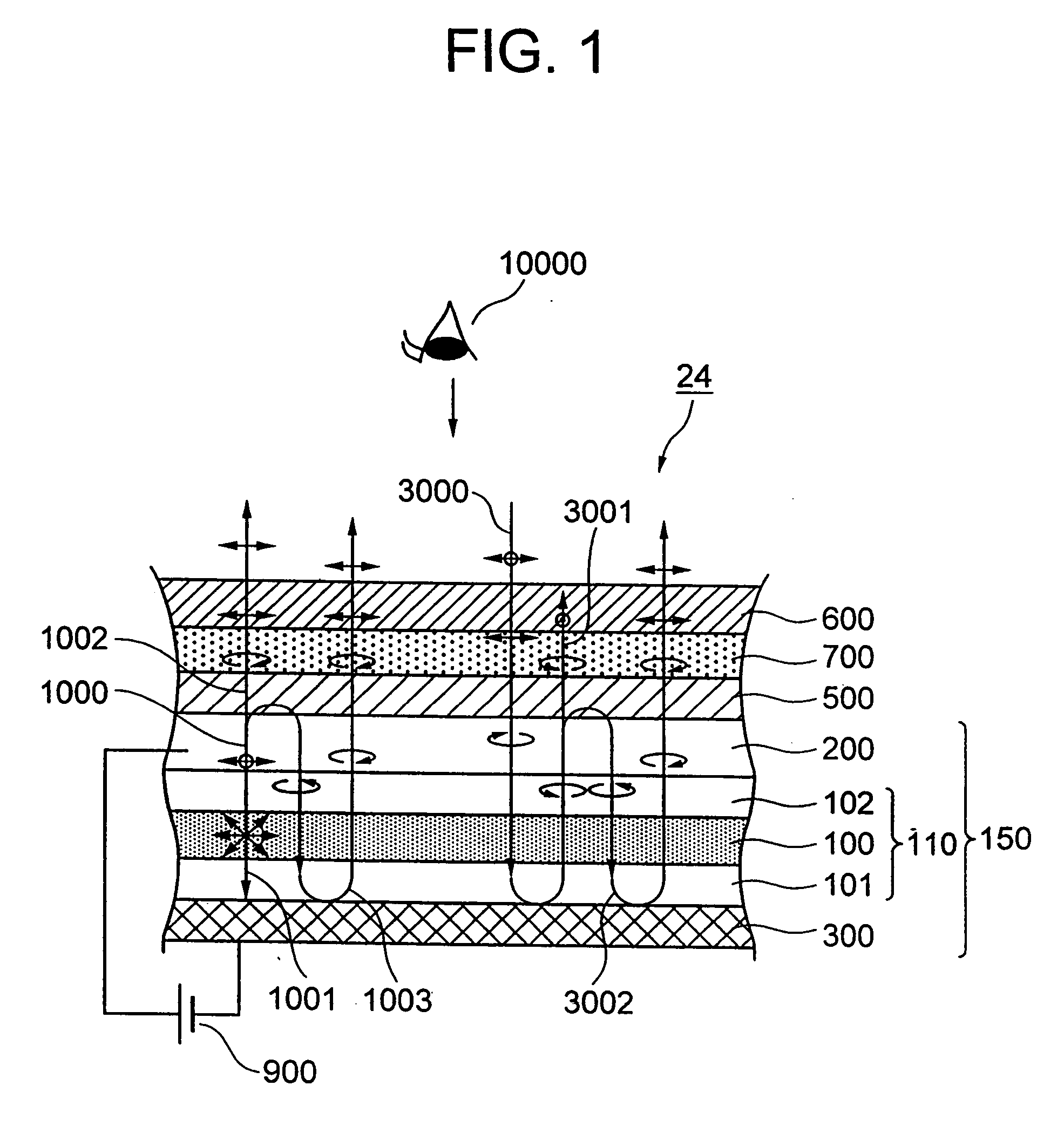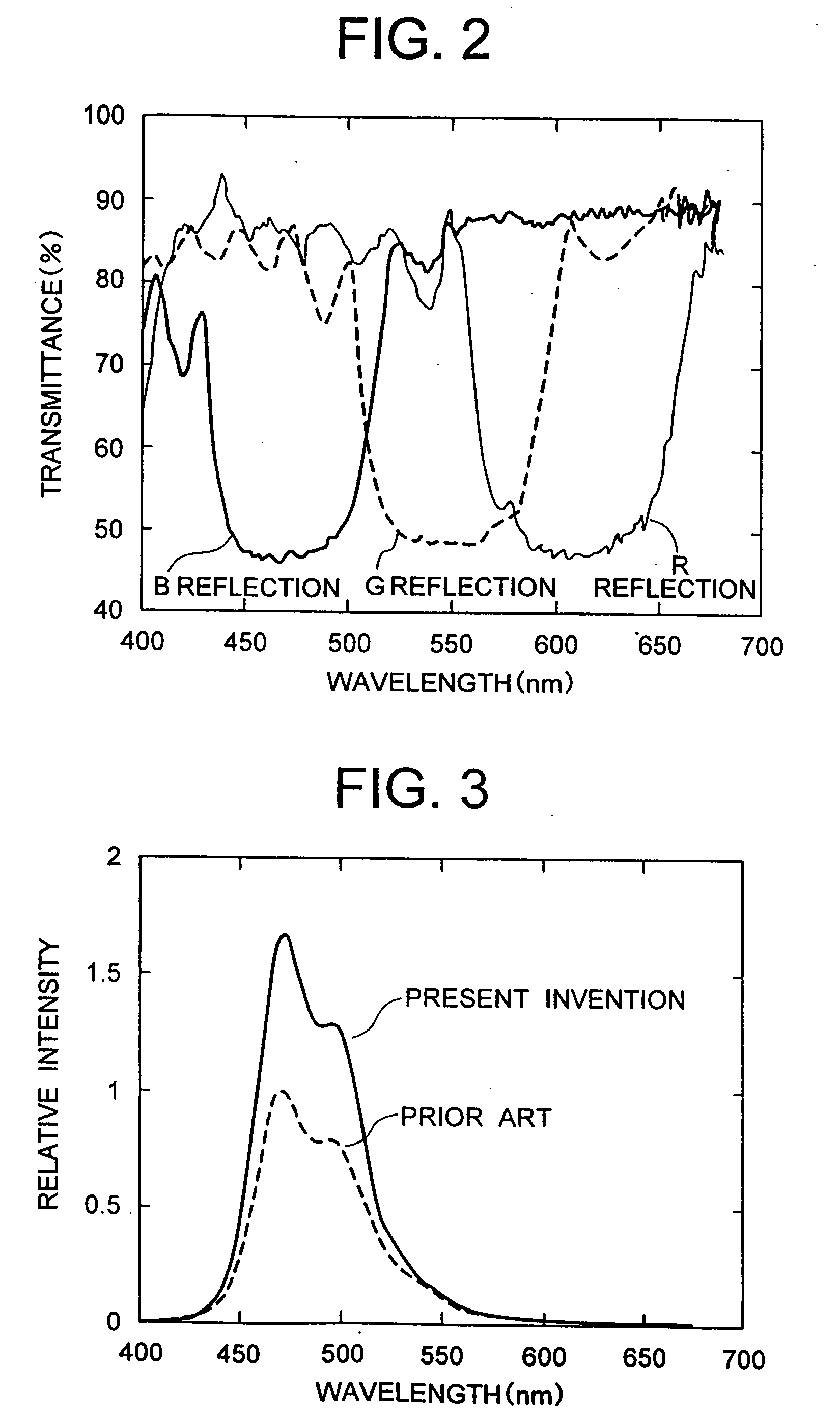Light-emitting devices and light-emitting displays
a technology of light-emitting devices and light-emitting displays, which is applied in the direction of luminescnet screens, identification means, instruments, etc., can solve the problems of short response time of display, deterioration of device efficiency, and decrease of contrast ratio
- Summary
- Abstract
- Description
- Claims
- Application Information
AI Technical Summary
Benefits of technology
Problems solved by technology
Method used
Image
Examples
embodiment 1
of the Light-Emitting Displays
[0108] Light-emitting displays in which a plurality of light-emitting elements of the invention are aligned and arranged, the light emitting operations of the plurality of light-emitting devices are controlled, and a display is performed will now be described. FIG. 7 is a block diagram schematically showing a whole layout of a light-emitting display 1 according to the invention. FIG. 8 is an equivalent circuit diagram of an active matrix constructed in a display area 2.
[0109] As shown in FIG. 7, in the display 1, the display area 2 is formed in almost a center portion of a substrate 6. A data driving circuit 3 for outputting an image signal to a data line 7 is formed on the upper side of the display unit 2 and a scan driving circuit 4 for outputting a scan signal to a gate line 8 is formed on the left side. Each of the driving circuits 3 and 4 is constructed by a shift register circuit a level shifting circuit, an analog switching circuit, and the like...
embodiment 2
of the Light-Emitting Displays
[0167] Another embodiment of the light-emitting displays in the invention will now be described. FIG. 16 is a partial cross sectional view showing an outline of the light-emitting display of the invention. Since a fundamental construction of the display is substantially the same as that of the foregoing embodiment except that the light-emission color of organic layers 110W is white and the display has color filters, the same and corresponding portions are designated by the same reference numerals and their detailed descriptions are omitted.
[0168] As shown in FIG. 16, according to the present display, in the embodiment described with reference to FIG. 11, all of the organic layers which were pattern-formed to R, G, and B are replaced with the organic layers 110W of white light emission, and color filters 900R, 900G, and 900B for transmitting the lights corresponding to R, G, and B are pattern-formed between the second substrate 90 and the polarization s...
PUM
 Login to View More
Login to View More Abstract
Description
Claims
Application Information
 Login to View More
Login to View More - R&D
- Intellectual Property
- Life Sciences
- Materials
- Tech Scout
- Unparalleled Data Quality
- Higher Quality Content
- 60% Fewer Hallucinations
Browse by: Latest US Patents, China's latest patents, Technical Efficacy Thesaurus, Application Domain, Technology Topic, Popular Technical Reports.
© 2025 PatSnap. All rights reserved.Legal|Privacy policy|Modern Slavery Act Transparency Statement|Sitemap|About US| Contact US: help@patsnap.com



